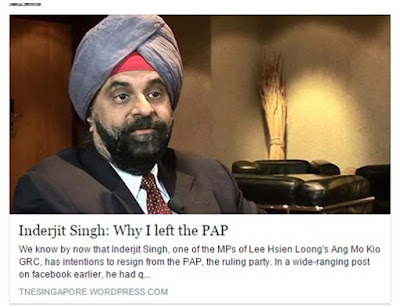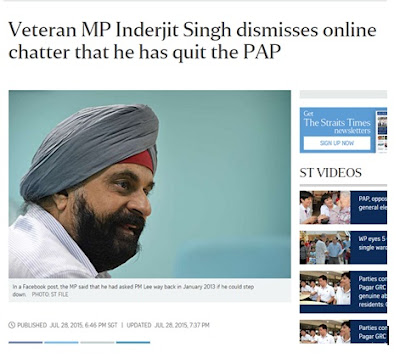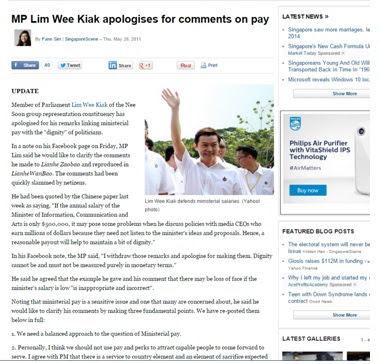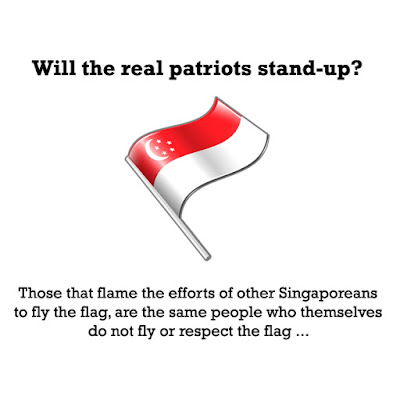"Playing games with your votes: A Game-Theory Analysis for First Time Voters"
Speculation is rife that Singapore will be holding its next General Election within 2015, as the nation celebrates its 50-year jubilee. The upcoming elections reflect both past and future. It is at once a measure of the past success in bringing Singapore to its current state of strength and a signpost for what to expect in the coming years.
As with all past elections, there will be a group of first-time voters. These are made up mostly of citizens who reach 21 years of age, although there are also those who have recently become new citizens.
According to data from the department of statistics, there are approximately 240,000 Singaporeans in the 20-24 years age band. Having missed out on voting in GE2011, citizens within this age range will be voting for the first time. From 2012 to 2014, Singapore also took in approximately 61,500 new citizens. All in all, there will be approximately 300,000 first time voters in the upcoming elections.
These citizens have come of age or joined the Singapore story at a critical juncture of time. It is therefore important for them to understand the gravity of the upcoming elections.
The best way to do so is to reflect on the impacts of the last elections.
When we talk about GE2011, we think about the Workers’ Party’s (WP) spectacular win at Aljunied GRC - unprecedented loss for the PAP and a major turning point for Singapore’s opposition parties. More importantly, it exposed the weaknesses of GRCs, with the loss of key cabinet appointment holders.
After the elections, the WP formed the Aljunied-Hougang-Punggol East Town Council (AHPETC) by merging the managing of the constituencies it had won. However, it was after the elections that problems emerged for the WP. Much ink has been spilt on the financial and governance lapses in AHPETC – while the situation is still murky now, suffices to say for now that all is far from well in AHPETC.
Now let’s delve a little deeper into the internal party dynamics. There are three lawyers and one veteran opposition leader in AHPETC, but this has not prevented the lapses that have arisen. Out of the three lawyers, one has proven to be less than reliable in court statements (Sylvia Lim), another has little to offer in terms of opinion (Chen Show Mao), while the third is remains idealistic and naive (Pritam Singh). Similarly in Punggol East and
Hougang, WP politicians either lack maturity or gumption in their roles.
This is most evident in their lackluster parliamentary speeches and debates. This leaves the WP’s role as check and balance squarely on the shoulders of its leader Low Thia Khiang (who, as his usual habit, has gone into hibernation in the run up to elections).
Is this what citizens who voted for the WP expected? Perhaps not. Many voted because they feel that a PAP-dominated Parliament is not good for Singapore. And they are right – indeed, much of the current largesse we see in social policies now could be the government responding to the electorate. The question is whether the WP we have seen since 2011, is the opposition we want.
What about the other opposition parties? The Singapore Democratic Alliance is relatively low key, and a few appear to be caught in a merry-go-round of personnel exchange (Reform Party, National Solidarity Party, Singapore People’s Party, Singapore First). But what about the Singapore Democratic Party?
With the return of Secretary General Dr Chee Soon Juan and the party’s shift towards more weighty policy discussions, will the SDP emerge as a credible opposition? This remains to be seen. However, its past record and the aggressive tactics of Dr Chee have not endeared them to voters. Voters who are considering placing their bets on the SDP will need to think carefully about whether the SDP can really perform, or will they backslide into fancy rhetoric and ideological naiveté?
What about the other opposition parties? The Singapore Democratic Alliance is relatively low key, and a few appear to be caught in a merry-go-round of personnel exchange (Reform Party, National Solidarity Party, Singapore People’s Party, Singapore First). But what about the Singapore Democratic Party?
With the return of Secretary General Dr Chee Soon Juan and the party’s shift towards more weighty policy discussions, will the SDP emerge as a credible opposition? This remains to be seen. However, its past record and the aggressive tactics of Dr Chee have not endeared them to voters. Voters who are considering placing their bets on the SDP will need to think carefully about whether the SDP can really perform, or will they backslide into fancy rhetoric and ideological naiveté?
As the case of AHPETC has shown, voting in the wrong people can have disastrous implications for residents. It is true that voting PAP is not foolproof.
It has made mistakes. From insufficient planning for Singapore’s growing population, public transport woes, to high cost of housing, among others, Singaporeans have rightfully pointed out that the PAP government has not been perfect. Prime Minister Lee Hsien Loong acknowledged as much when he apologized for these mistakes in GE2011 and pledged to do better. Thus we have the Pioneer Generation Package, new additions to the rail network, and greater engagement by MPs and activists.
Setting up the Game
“According to game theory, voters will be better off selecting the party that has the highest probability of achieving these goals for citizens.”
There are clear measurable outcomes of our decisions at the polls, in terms of town council governance and contributions to parliamentary debate. This makes the elections a venue for rational decision-making by voters.
“According to game theory, voters will be better off selecting the party that has the highest probability of achieving these goals for citizens.”
There are clear measurable outcomes of our decisions at the polls, in terms of town council governance and contributions to parliamentary debate. This makes the elections a venue for rational decision-making by voters.
In political science, this is known as rational choice theory. In the parlance of game theory, we can think of the electoral process as a ‘rational multi-shot game’. Rational: we assume voters to prefer capable MPs to incompetent or dishonest MPs. Multi-shot: elections are an iterative process over multiple cycles.
The outcome of such a game is the selection of the party that is best able to provide for the material well-being of citizens and establish the space for their non-material needs, such as religious diversity and multiculturalism, According to game theory, voters will be better off selecting the party that has the highest probability of achieving these goals for citizens. They have to access the “pay-off” from their decisions – whether an “accept/reject” decision for a certain party will improve their well-being.
Such ability is arguably a function of resources, competency of party members, and historical track record. In other words, voters should select an MP who is well-qualified (both academically and in terms of experience) to carry out his/her duties from a party that possesses a track record of good governance and transparency, and which possesses the manpower and material resources to support its MPs.
Such ability is arguably a function of resources, competency of party members, and historical track record. In other words, voters should select an MP who is well-qualified (both academically and in terms of experience) to carry out his/her duties from a party that possesses a track record of good governance and transparency, and which possesses the manpower and material resources to support its MPs.
That this is not a one-shot game has different implications. The bad news is that we have to live with our decision for five years. The good news is that we have a chance to change our decisions in light of new information after each game. But here’s the rub – we don’t start each game anew after five years – we can’t simply “reset” because a lot can change within five years. Damage that cannot be undone - perhaps for decades to come.
For the first-time voters who will surely be here at our 100-year jubilee, your votes will determine whether the next 50 years will be as successful as the past 50 years. This is the first of at least 10 games.
For returning voters, there is a need for honest and objective reflection about whether their candidates have delivered on what they have promised. One of the most important characteristic in a multi-shot game is the ability
to change your mind.




















